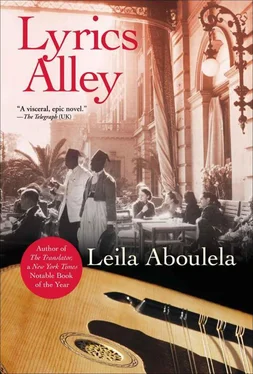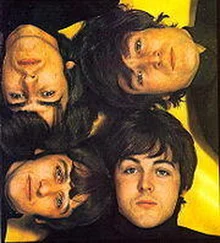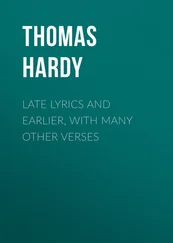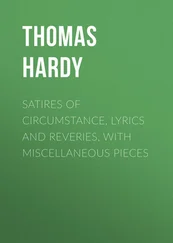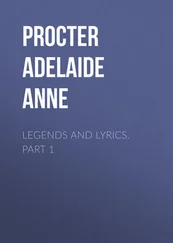Leila Aboulela - Lyrics Alley
Здесь есть возможность читать онлайн «Leila Aboulela - Lyrics Alley» весь текст электронной книги совершенно бесплатно (целиком полную версию без сокращений). В некоторых случаях можно слушать аудио, скачать через торрент в формате fb2 и присутствует краткое содержание. Год выпуска: 2011, Издательство: Grove Press, Жанр: Современная проза, на английском языке. Описание произведения, (предисловие) а так же отзывы посетителей доступны на портале библиотеки ЛибКат.
- Название:Lyrics Alley
- Автор:
- Издательство:Grove Press
- Жанр:
- Год:2011
- ISBN:нет данных
- Рейтинг книги:5 / 5. Голосов: 1
-
Избранное:Добавить в избранное
- Отзывы:
-
Ваша оценка:
- 100
- 1
- 2
- 3
- 4
- 5
Lyrics Alley: краткое содержание, описание и аннотация
Предлагаем к чтению аннотацию, описание, краткое содержание или предисловие (зависит от того, что написал сам автор книги «Lyrics Alley»). Если вы не нашли необходимую информацию о книге — напишите в комментариях, мы постараемся отыскать её.
Lyrics Alley — читать онлайн бесплатно полную книгу (весь текст) целиком
Ниже представлен текст книги, разбитый по страницам. Система сохранения места последней прочитанной страницы, позволяет с удобством читать онлайн бесплатно книгу «Lyrics Alley», без необходимости каждый раз заново искать на чём Вы остановились. Поставьте закладку, и сможете в любой момент перейти на страницу, на которой закончили чтение.
Интервал:
Закладка:
‘Come along, Father. The donkey is not ours. It has to go away with its owner.’
The cart driver, a lanky, grumpy youth, was looking perplexed at the old man and was impatient to be off. Badr untangled his father’s arms from around the donkey’s neck.
He paid off the driver and, with excruciatingly small steps, led his father to the entrance of the building.
‘I will go ahead of you,’ Hanniyah said. ‘Allah only knows when you will get Uncle Hajj up there!’
Her eyes were shining and her cheeks flushed. Yes, this was her day. He said, ‘Take the suitcase with you so you can start to unpack.’
She handed the sleeping child to Badr and lugged the suitcase up the stairs. So, baby on his left arm and his right prodding the old man up the stairs.
‘Careful, Father, one step at a time.’
Two steps, three steps, they gathered momentum and reached halfway up the stairs. Then his father stopped. For no reason at all he came to a standstill. Badr pleaded and tugged but to no avail. He could hear Hanniyah making her way to the flat up above; he could hear her expression of surprise as she entered through the door.
‘Come on, Father.’
He had to be extra gentle. A struggle on the staircase would be unsafe for the three of them. The baby stirred in his arm and opened her eyes. She was beautiful in these waking up moments, incredibly soft, languid and angelic in the clear trusting way she gazed up at him. He kissed her, and she shifted to sit more upright in his embrace.
Here he was with his bliss in one arm and his burden in the other, his pleasure on one side and his trial in the other. Balanced. Striving up with these two attachments. Holding them both at the same time. It was the fresh start of life and the gloomy, narrowing end. Loving them both, serving them both. His father shifted and raised one foot up. How slowly they were progressing! Badr was missing what he had been looking forward to — Hanniyah’s expression when she first saw her new home. By the time they reached the flat, she would be engrossed in unpacking and her mind occupied. He would have liked to be with her now, now as she raised her hand to her mouth and broke into a spontaneous ululation of joy.
XXII
Patience, and this is how fame begins. Nur is putting a call through the operator. As usual, Zaki had dialled the number then placed the receiver against Nur’s ear. By bending his head sideways he can hold it wedged against his shoulder and Zaki is free to wander off and check that the long cord of the telephone is not entangled in its trip from Nur’s room to the hoash. Nur gives his name and the number he wants to reach. Instead of the customary, ‘Hold the line, please,’ the operator’s voice changes and lightens. ‘Nur Abuzeid! Really?’ He speaks as if he is no longer an operator but an impressionable young man, perhaps a little younger than Nur. It’s hard to tell. ‘Excuse me for asking, Sir. But are you Nur Abuzeid, the poet?’
This has never happened before. Yesterday he had put in a call to Ustaz Badr at the school and got no such response.
The operator continues, ‘I am one of your admirers, Sir. I listen to your lyrics on the radio and copy them down. Your poem Hope is a masterpiece in my opinion.’
Nur smiles.
‘Thank you.’
The afternoon is different now. He is lying in the same hoash, its uneven floor sprayed with water; he is under the same cloudless sky, hearing the riot of the birds in the saraya’s garden and beyond the walls the sounds of the alley: men walking to the mosque, women visiting each other and dawdling, the scuffle and thud of a football game. But now there is an unexpected glow in this wide prison where life ebbs and flows, where others come and go and late at night songs are composed, where young poets come to recite their raw lyrics and leave saying, ‘I’ve attended a literary salon in Umdurman where they serve a good dinner too.’ Today Nur is honoured.
‘If you don’t mind me asking about a specific line in your poem? I dabble in a few verses now and again myself.’
This admirer is voluble. Perhaps being an operator is not suited to his nature, perhaps he should be something else, somewhere else. Nur knows about this. There had been a time too — before the accident — when he wanted to be a poet, but his voice was feeble and the roads were blocked. These days he recites and people listen to the sincerity of his words. They hear a poem tense as a confrontation between bitter and sweet, a story in which the victors are mercy and love.
‘Please feel free to ask me anything you want.’
Everyone in the hoash turns to look at Nur. The receiver is sliding and Fatma tucks it back in place. Nassir is making pantomime gestures of inquiry, which Nur ignores. His mother, sitting on her angharaib is pouring herself a glass of cardamom tea. She sucks the first draught and listens.
‘When you say to your loved one Tomorrow I will put on my best clothes / To go out and meet you by the Nile , is that a reference to a specific location?’
Nur remembers a family picnic which Nassir had arranged, a whole day out by the river. He remembers the chatter of Fatma and her children, Halima and her children. Nur’s cot was carried all the way to the shore and the winter breeze blew through the trees. Soraya sat next to him, and they were both aware of the sound of the water and how special the day was. They talked and didn’t need to talk, every little thing they said mattered and was unnecessary at the same time. Later, he sat in his wheelchair and she put on her glasses. She stood behind him, holding open the pages of a magazine. They both looked down and read together one of his poems in classical verse, the one Ustaz Badr rated highly — Flocks of Beauty . Nur remembers Soraya’s closeness and his words in print, her closeness and her attributes in ink, that mighty, moving Nile, and Nassir with his rod, catching the fish they would later grill.
‘The Riveria Park in Umdurman,’ Nur replies.
But it was another riverbank which was the trigger for Hope , another Nile. It was the men’s night out, when they went to the Burri houseboat on the Blue Nile. How can one pinpoint a particular scene, a single place? The poems came from far beyond and deep within, from dreams he’d seen and lines he’d not yet read, from aches and his need to manoeuvre, his need to stretch and reach out, to pull and push and clutch tight, to touch or pinch, carry or stroke, and what must be said to describe her eyes rimmed with kohl and how smitten she is, his own flesh and blood, how tender and smitten.
‘I have another question,’ says the operator.
Nur is happy to answer. The telephone call to Hamza Al-Naggar, which was important a few minutes ago, can wait. This recognition is gratifying. It fills him up, it makes him feel nourished and at peace. Today his howling demon will be subdued, his rebellious side which urges him to go on strike, will be muted. He had composed his poetry to a void, reciting to a star, reaching out to faceless, nameless strangers and now connections are being made. Balm to his bitterness, the solace he needs, the compensation he ached for when he despaired and asked, why, why me? This is the sort of incident everyone in the family will repeat.
‘The telephone operator recognised him!’ his father will say at the Abuzeid office.
His father, who was at first ashamed, and now is coming round, because success is much easier to understand than Art. Success carries respectability and draws people near. His mother, too, will repeat the story to that gossipy neighbour and soon, very soon, it will cross the river and reach Soraya’s house. The pleasure lasts, settles and lasts, long after the receiver is moved away from his ear.
Читать дальшеИнтервал:
Закладка:
Похожие книги на «Lyrics Alley»
Представляем Вашему вниманию похожие книги на «Lyrics Alley» списком для выбора. Мы отобрали схожую по названию и смыслу литературу в надежде предоставить читателям больше вариантов отыскать новые, интересные, ещё непрочитанные произведения.
Обсуждение, отзывы о книге «Lyrics Alley» и просто собственные мнения читателей. Оставьте ваши комментарии, напишите, что Вы думаете о произведении, его смысле или главных героях. Укажите что конкретно понравилось, а что нет, и почему Вы так считаете.
